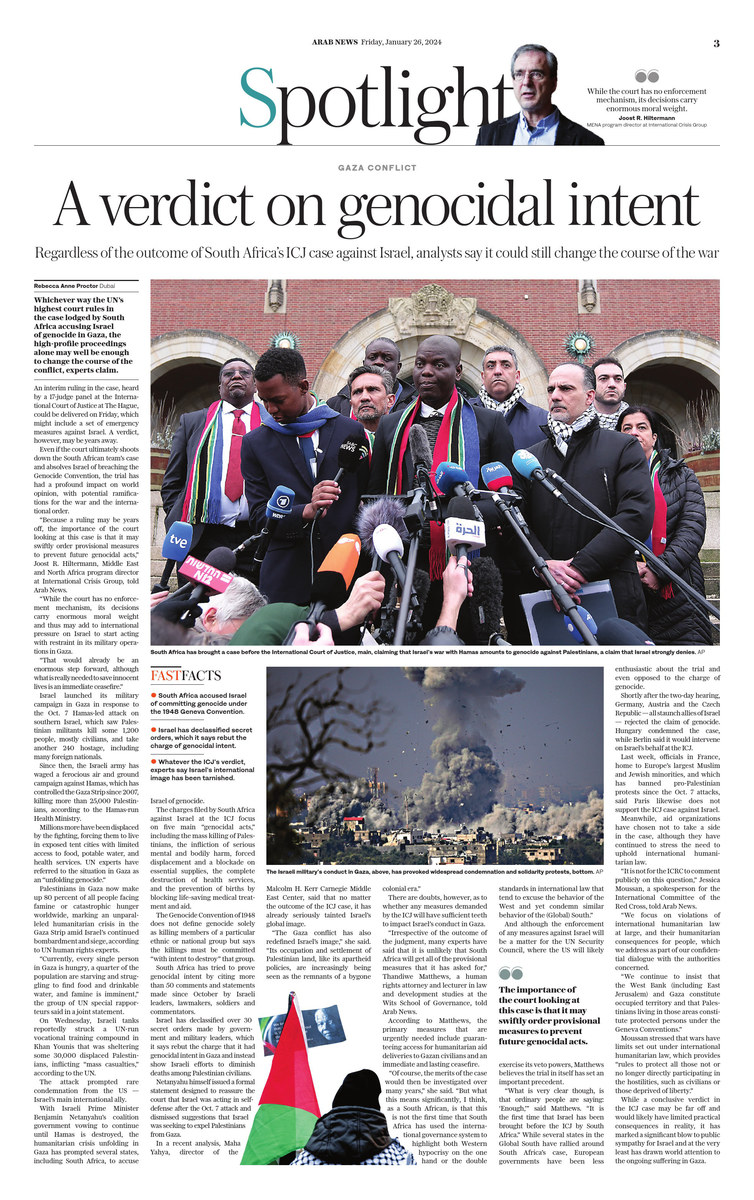DUBAI: Whichever way the UN’s highest court rules in the case lodged by South Africa accusing Israel of genocide in Gaza, the high-profile proceedings alone may well be enough to change the course of the conflict, experts claim.
An interim ruling in the case, heard by a 17-judge panel at the International Court of Justice at The Hague, could be delivered on Friday, which might include a set of emergency measures against Israel. A verdict, however, may be years away.
Even if the court ultimately shoots down the South African team’s case and absolves Israel of breaching the Genocide Convention, the trial has had a profound impact on world opinion, with potential ramifications for the war and the international order.
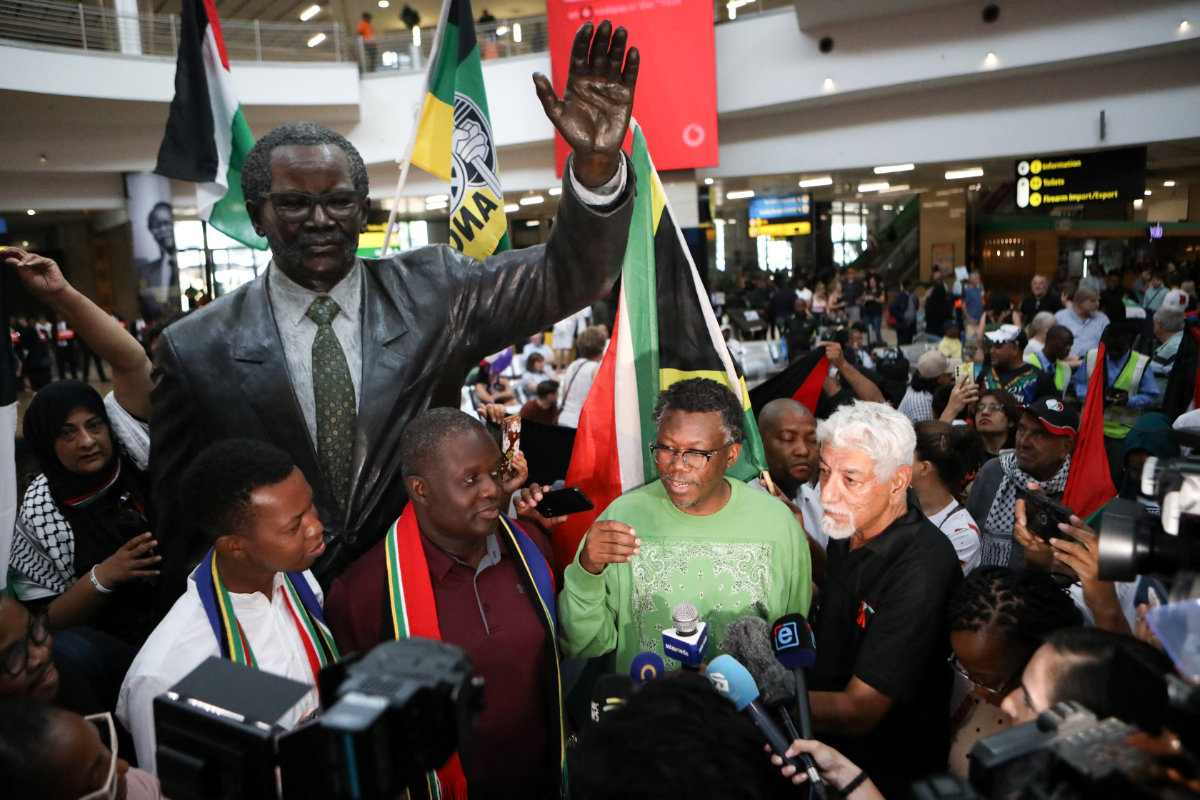
Advocate Tembeka Ngcukaitobi, a member of the South African legal team, talks to journalists after landing back in South Africa on Jan. 14, 2024. after representing the country in a two-day hearing against Israel at the International Court of Justice. (AFP)
“Because a ruling may be years off, the importance of the court looking at this case is that it may swiftly order provisional measures to prevent future genocidal acts,” Joost R. Hiltermann, Middle East and North Africa program director at International Crisis Group, told Arab News.
“While the court has no enforcement mechanism, its decisions carry enormous moral weight and thus may add to international pressure on Israel to start acting with restraint in its military operations in Gaza.
“That would already be an enormous step forward, although what is really needed to save innocent lives is an immediate ceasefire.”
FASTFACTS
• South Africa accused Israel of committing genocide under the 1948 Geneva Convention.
• Israel has declassified secret orders, which it says rebut the charge of genocidal intent.
• Whatever the ICJ’s verdict, experts say Israel’s international image has been tarnished.
Israel launched its military campaign in Gaza in response to the Oct. 7 Hamas-led attack on southern Israel, which saw Palestinian militants kill some 1,200 people, mostly civilians, and take another 240 hostage, including many foreign nationals.
Since then, the Israeli army has waged a ferocious air and ground campaign against Hamas, which has controlled the Gaza Strip since 2007, killing more than 25,000 Palestinians, according to the Hamas-run health ministry.
Millions more have been displaced by the fighting, forcing them to live in exposed tent cities with limited access to food, potable water, and health services. UN experts have referred to the situation in Gaza as an “unfolding genocide.”
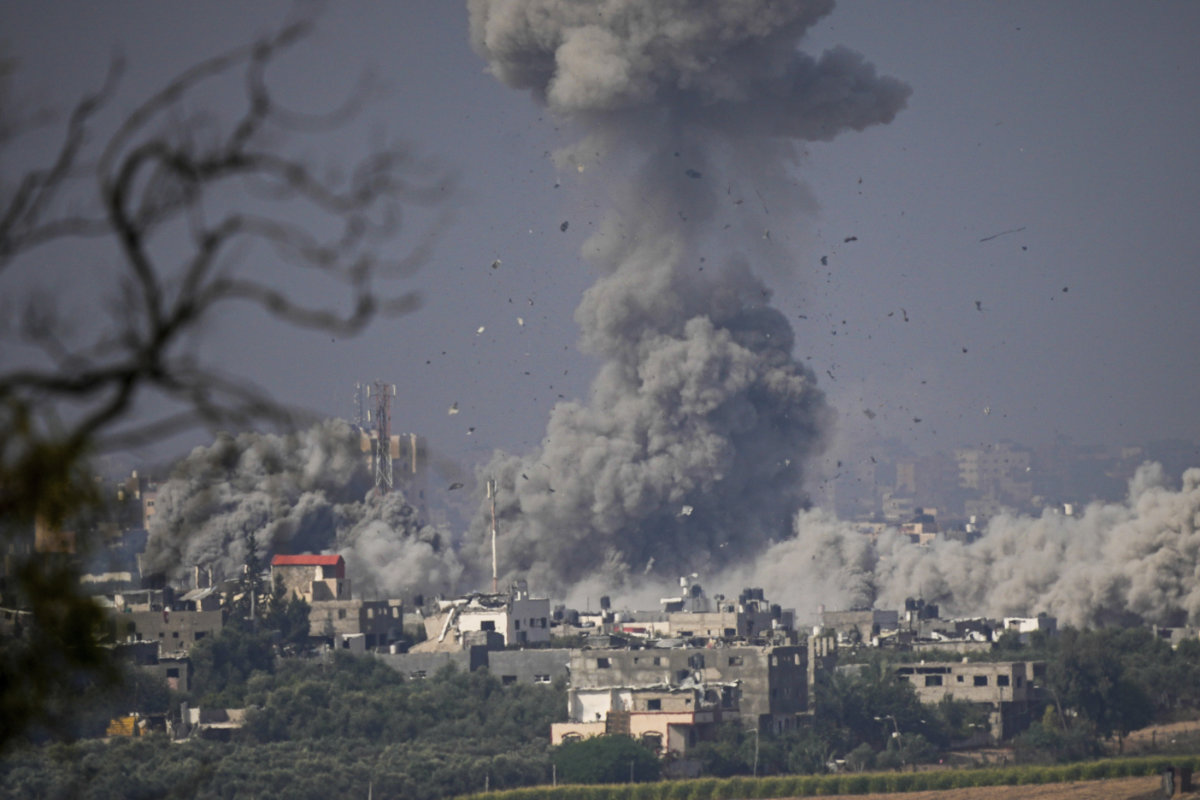
Israel's war on Hamas in the Gaza Strip has the Mideast simmering, raising the temperature on tensions across the region and increasing the risk that seemingly localized conflicts could spin out of control. (AP Photo/File)
Palestinians in Gaza now make up 80 percent of all people facing famine or catastrophic hunger worldwide, marking an unparalleled humanitarian crisis in the Gaza Strip amid Israel’s continued bombardment and siege, according to UN human rights experts.
“Currently, every single person in Gaza is hungry, a quarter of the population are starving and struggling to find food and drinkable water, and famine is imminent,” the group of UN special rapporteurs said in a joint statement.
On Wednesday, Israeli tanks reportedly struck a UN-run vocational training compound in Khan Younis that was sheltering some 30,000 displaced Palestinians, inflicting “mass casualties,” according to the UN.

An Israeli army tank rolls in southern Israel along the border with the Gaza Strip on January 24, 2024. (AFP)
The attack prompted rare condemnation from the US — Israel’s main international ally.
With Israeli Prime Minister Benjamin Netanyahu’s coalition government vowing to continue until Hamas is destroyed, the humanitarian crisis unfolding in Gaza has prompted several states, including South Africa, to accuse Israel of genocide.
The charges filed by South Africa against Israel at the ICJ focus on five main “genocidal acts,” including the mass killing of Palestinians, the infliction of serious mental and bodily harm, forced displacement and a blockade on essential supplies, the complete destruction of health services, and the prevention of births by blocking life-saving medical treatment and aid.
READ MORE: What is the genocide case against Israel at top UN court?
The Genocide Convention of 1948 does not define genocide solely as killing members of a particular ethnic or national group but says the killings must be committed “with intent to destroy” that group.
South Africa has tried to prove genocidal intent by citing more than 50 comments and statements made since October by Israeli leaders, lawmakers, soldiers and commentators.
Israel has declassified over 30 secret orders made by government and military leaders, which it says rebut the charge that it had genocidal intent in Gaza and instead show Israeli efforts to diminish deaths among Palestinian civilians.
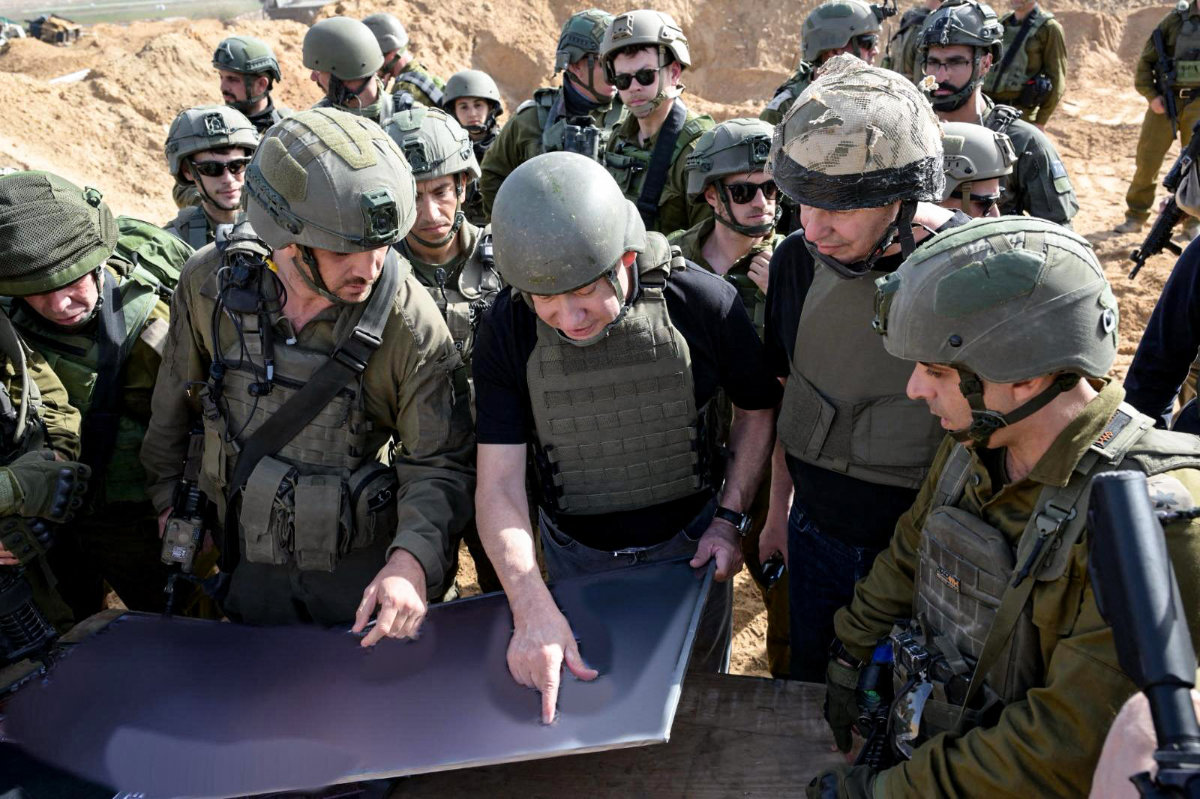
Israeli Prime Minister Benjamin Netanyahu (C) meets soldiers at an undisclosed location in the Gaza Strip. Netanyahu told soldiers in the Gaza Strip on November 26, 2023, that Israel's efforts would continue "until victory." (AFP)
Netanyahu himself issued a formal statement designed to reassure the court that Israel was acting in self-defense after the Oct. 7 attack and dismissed suggestions that Israel was seeking to expel Palestinians from Gaza.
In a recent analysis, Maha Yahya, director of the Malcolm H. Kerr Carnegie Middle East Center, said that no matter the outcome of the ICJ case, it has already seriously tainted Israel’s global image.
“The Gaza conflict has also redefined Israel’s image,” she said. “Its occupation and settlement of Palestinian land, like its apartheid policies, are increasingly being seen as the remnants of a bygone colonial era.”
There are doubts, however, as to whether any measures demanded by the ICJ will have sufficient teeth to impact Israel’s conduct in Gaza.
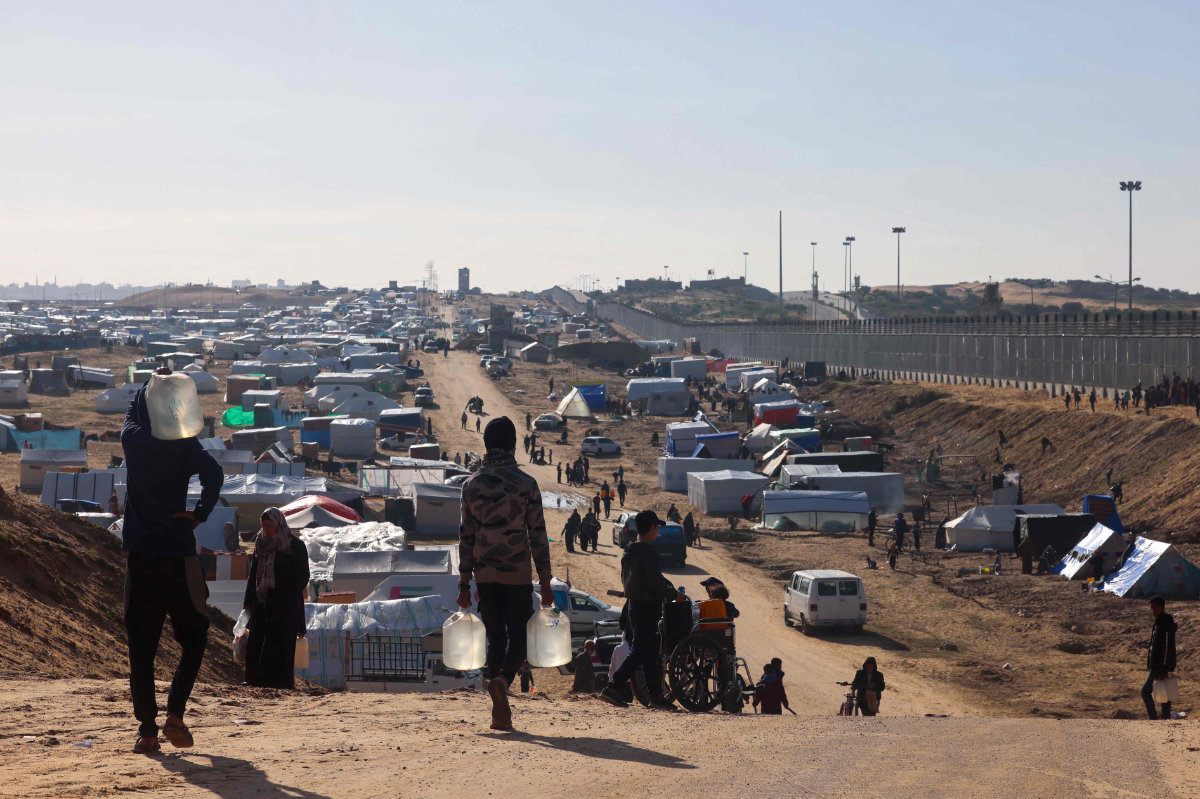
People ferry water at a makeshift tent camp for displaced Palestinians in Rafah near the border with Egypt in the southern Gaza Strip on January 24, 2024. (AFP)
“Irrespective of the outcome of the judgment, many experts have said that it is unlikely that South Africa will get all of the provisional measures that it has asked for,” Thandiwe Matthews, a human rights attorney and lecturer in law and development studies at the Wits School of Governance, told Arab News.
According to Matthews, the primary measures that are urgently needed include guaranteeing access for humanitarian aid deliveries to Gazan civilians and an immediate and lasting ceasefire.
“Of course, the merits of the case would then be investigated over many years,” she said. “But what this means significantly, I think, as a South African, is that this is not the first time that South Africa has used the international governance system to highlight both Western hypocrisy on the one hand or the double standards in international law that tend to excuse the behavior of the West and yet condemn similar behavior of the (Global) South.”
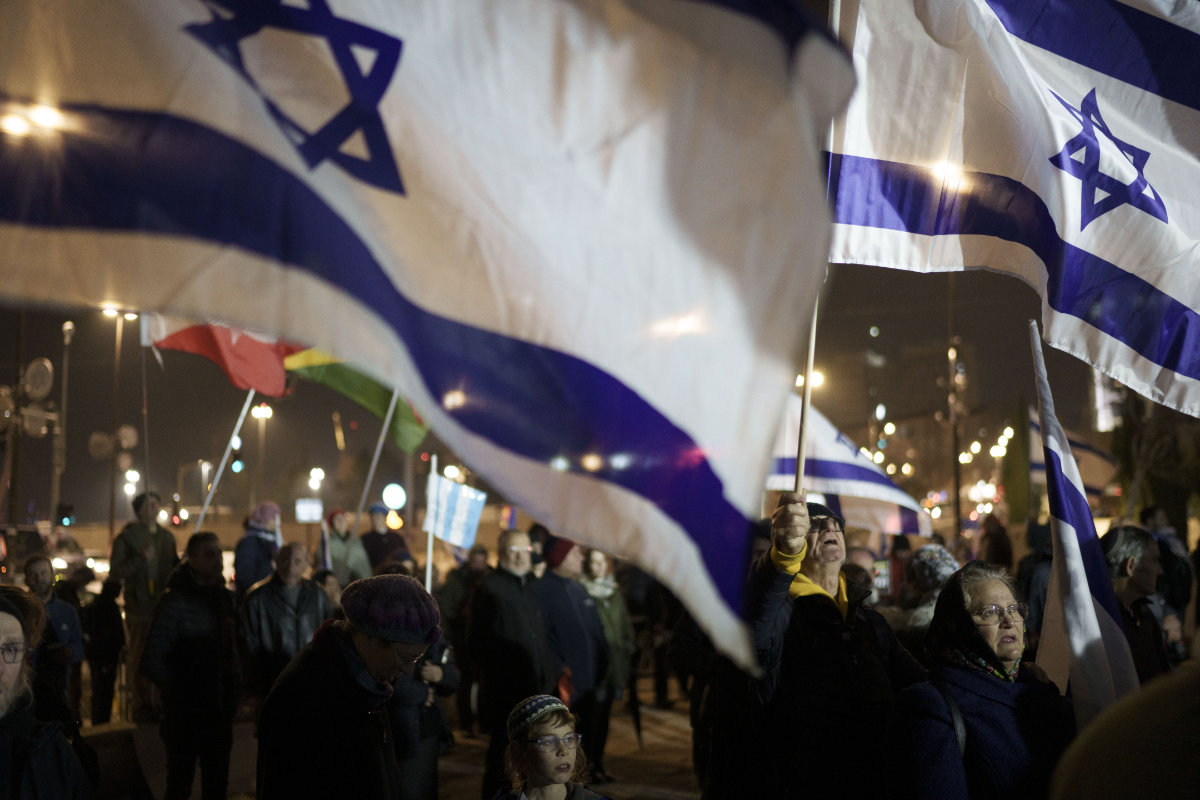
Israelis take part in a protest in Jerusalem on Jan. 25, 2024, against humanitarian aid entering Gaza and against the hostages exchange deal with Hamas. (AP)
And although the enforcement of any measures against Israel will be a matter for the UN Security Council, where the US will likely exercise its veto powers, Matthews believes the trial in itself has set an important precedent.
“What is very clear though, is that ordinary people are saying: ‘Enough,’” said Matthews. “It is the first time that Israel has been brought before the ICJ by South Africa.”
While several states in the Global South have rallied around South Africa’s case, European governments have been less enthusiastic about the trial and even opposed to the charge of genocide.
Shortly after the two-day hearing, Germany, Austria and the Czech Republic — all staunch allies of Israel — rejected the claim of genocide. Hungary condemned the case, while Berlin said it would intervene on Israel’s behalf at the ICJ.
Last week, officials in France, home to Europe’s largest Muslim and Jewish minorities, and which has banned pro-Palestinian protests since the Oct. 7 attacks, said Paris likewise does not support the ICJ case against Israel.
Meanwhile, aid organizations have chosen not to take a side in the case, although they have continued to stress the need to uphold international humanitarian law.
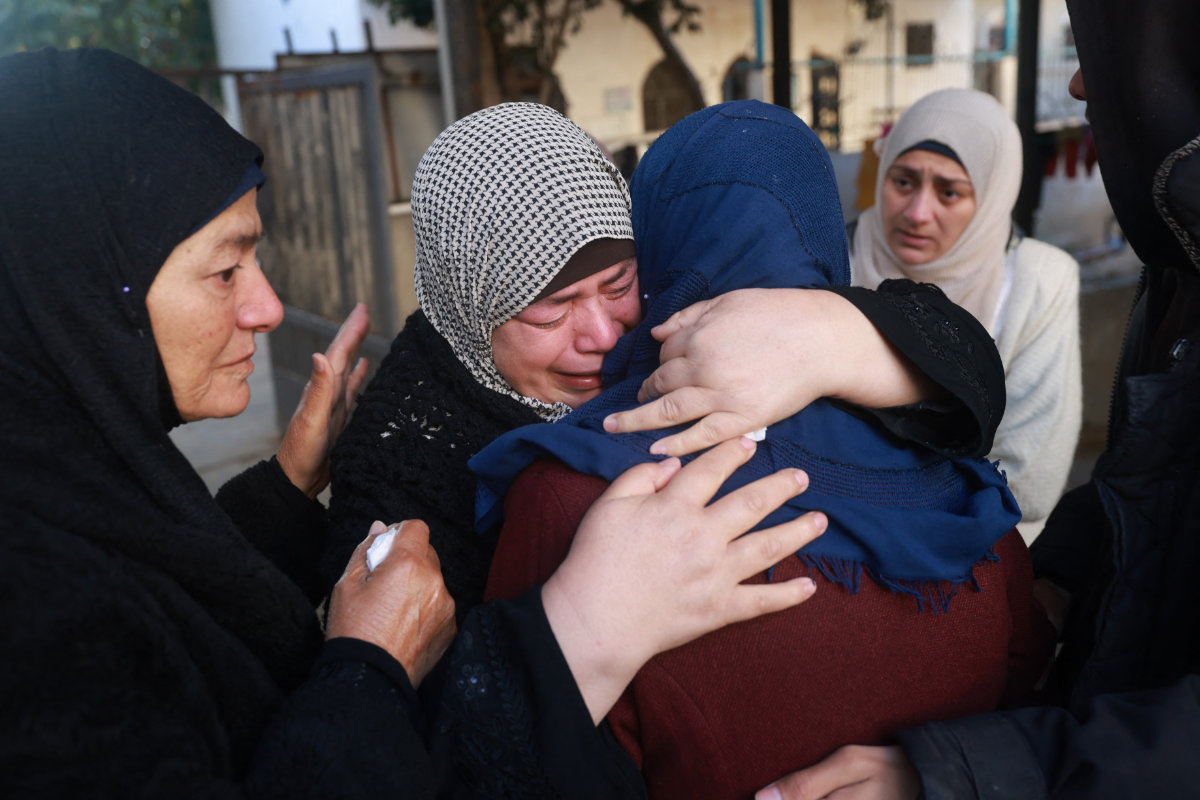
Palestinian women mourn outside the Najjar hospital in Rafah during a group burial on January 25, 2024 for relatives killed in the latest Israeli bombardment of Khan Younis and Rafah in the southern Gaza Strip. (AFP)
“It is not for the ICRC to comment publicly on this question,” Jessica Moussan, a spokesperson for the International Committee of the Red Cross, told Arab News.
“We focus on violations of international humanitarian law at large, and their humanitarian consequences for people, which we address as part of our confidential dialogue with the authorities concerned.
“We continue to insist that the West Bank (including East Jerusalem) and Gaza constitute occupied territory and that Palestinians living in those areas constitute protected persons under the Geneva Conventions.”
Moussan stressed that wars have limits set out under international humanitarian law, which provides “rules to protect all those not or no longer directly participating in the hostilities, such as civilians or those deprived of liberty.”
While a conclusive verdict in the ICJ case may be far off and would likely have limited practical consequences in reality, it has marked a significant blow to public sympathy for Israel and at the very least has drawn world attention to the ongoing suffering in Gaza.
